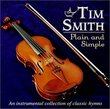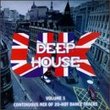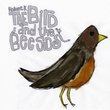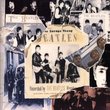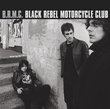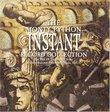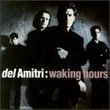| All Artists: David Bowie Title: Diamond Dogs (Ryko) Members Wishing: 4 Total Copies: 0 Label: Rykodisc Album Type: Extra tracks Genres: Alternative Rock, Pop, Rock, Classic Rock, Metal Styles: Hardcore & Punk, Progressive, Progressive Rock, Glam Number of Discs: 1 SwapaCD Credits: 1 UPCs: 4988006822061, 014431013713, 014431013720, 014431013744, 114431013710, 114431013741 |
Search - David Bowie :: Diamond Dogs (Ryko)
 | David Bowie Diamond Dogs (Ryko) Genres: Alternative Rock, Pop, Rock, Classic Rock, Metal Limited Edition Japanese pressing of this album comes housed in a miniature LP sleeve. 2007. |
Larger Image |
CD DetailsSynopsis
Album Description Limited Edition Japanese pressing of this album comes housed in a miniature LP sleeve. 2007. Similar CDs
Similarly Requested CDs
|
CD ReviewsBleak Science Fiction Rock Opera Matthew R. Rayner | Sydney | 02/18/2005 (5 out of 5 stars) "I've been re-examining the Bowie album "Diamond Dogs". In a lot of ways it can be seen as the completion of the narrative begun in "Ziggy Stardust and the Spiders from Mars". If "Ziggy" is the synoptic gospels, then "Aladdin Sane" is the Gospel of St.Thomas, "Pin ups" the Dead Sea Scrolls and "Diamond Dogs" is the book of revelations. "Diamond Dogs" picks up a lot of the themes from Ziggy but is much darker. "Ziggy" tells the story of a cross dressing bisexual alien rock star messiah who warns the human race they have five years until some great catastrophe if they don't follow him, but who ends up being killed by his fans/disciples, and the remaining band members have to break up without their leper messiah lead singer. The narrative of "Diamond Dogs" could be seen as taking up after the great catastrophe predicted in the "Ziggy" album track "Five Years", and its principle character "Halloween Jack" - a crossdressing bisexual rock star anti-hero and possibly sometime politician could be seen as the second coming of "Ziggy". But whereas "Ziggy" was killed by his fans at the conclusian of that album, the conclusion of "Diamond Dogs" sees two possible very bleak endings, one of which "Halloween Jack" and his band "Diamond Dogs" surrender to "Big Brother" and the emerging fascist dictatorship, the other possible ending is that "Halloween Jack" becomes "Big Brother" and becomes the totalitarian dictator (this is my preferred and much bleaker interpretation - and fits with where Bowie was at at the time - this was shortly before the famous newspaper interview where he said he would make a good dictator of Britain, and the infamous Hitler salute farewelling his fans during a stopover from LA, before departing Britain for Germany). Essentially what I can piece together as the narrative based on the songs on the album is that "Diamond Dogs" is set some time after the cataclysmic event predicted in "Five Years". It's possibly set in 1984 - but that depends on a literal interpretation of the track "1984" which I think is meant to be an allegorical Orwellian reference. There's been some sort of apocalyptic event ("Future Legend"), the remaining human communities are scattered across the world ("Future Legend"), and live side by side with red eyed mutants ("Future Legend") and Lizard men aliens ("We are the Dead"). Giant mutated fleas feed on giant mutated rats ("Future Legend"). The world is a lot like Mad Max or Judge Dread. Our story takes place in New York ("Diamond Dogs"), now re named Hunger City ("Future Legend"). This is a world in which murderous and rapacious criminal gangs roam the streets at night ("Diamond Dogs") looking for victims, and a presently democratically elected but corrupt government ("Candidate") is creeping towards Authoritarianism, Oppression and Fascism ("We are the Dead", "1984", "Big Brother"). It is also a world where cheaply available sex and drugs permeate society ("Diamond Dogs","Sweet Thing", "Candidate","We are the Dead", "1984"). The main form of public entertainment is a bleak, and gritty form of rock music played by a number of bands that 'play it hard'. ("Rebel, Rebel", "Rock n Roll with me"). One of these bands is the "Diamond Dogs" with their lead singer "Halloween Jack". The Dogs become popular playing gritty bleak songs about their life and experiences in the dystopian, post-apocalyptic world they live in ("The whole album"), and to give themselves a bad image they style themselves after the criminal street gangs ("Diamond Dogs"). In the medley / sequence of songs that begins with "Sweet Thing" and continues on to "Candidate" and the "Sweet Thing" reprise, another character introduces himself. He is a cross dressing male prostitute/stripper. In "Sweet Thing" he introduces himself and shows us his gritty life, his song continues into "Candidate" where he's picked up by a politician (who is definitely the same person who becomes "Big Brother" at the end of the album and might be an alter ego of "Halloween Jack"). In "Rebel, Rebel", this character has become romantically involved with "Halloween Jack" and the "Diamond Dogs" perform two songs about him - "Rebel, Rebel" and "Rock n Roll with me". This character and "Halloween Jack" go to rock gigs together ("Rebel, Rebel", "Rock n Roll with me") and become embroiled in an underground resistance movement that leads them to being persecuted by the government ("We are the Dead"). On the track "1984", "Halloween Jack" warns the society he lives in and himself not to go down the path of totalitarianism/dictatorship. There's references to seeing the future in tea leaves and stuff like that and the chorus "beware the savage lure of 1984" is a warning to himself and the world he lives in to beware of the appeal of heading down the path of Orwell's 1984. [And not a literal setting of the story in the chronoligical year of '84]. This is followed up by "Big Brother" an anthem of praise to the new dictator who styles himself after the character from Orwell's novel. He also clearly sees himself, encourages his followers to see him as a god figure. The lyrics of the song and the way its performed implies that its "Halloween Jack" whose succumbed to evil and has become "Big Brother", but its still poignant if its just the case that the band has surrendered to the newly emerged dictatorship. The final track "Chant of the ever lasting skeleton family" ends with a sound replicating the sound of a record needle skipping repetitively over a scratch - sounding as if its an old scratched record from the past - symbolic that there is no more music, no more rock - the world that the Diamond Dogs inhabited has surrendered to "Big Brother", perhaps even ceased to exist. I highly reccomend this timeless classic and would love to see it performed as a staged rock opera." Brilliant, dark, desolate - an essential purchase 08/01/1999 (4 out of 5 stars) "Not exactly welcomed with open arms by critics when it was released in 1974, 'Diamond Dogs' was Bowie's most coherent attempt at a 'concept album' (boy, is that an ugly term). Perhaps some of this negativity was caused by the over-ambitious live tour that accompanied the album's release. However, judged purely on its musical merits, it's an album that holds up surprisingly well today. The highlight of the album is the sequence that runs seamlessly from 'Sweet Thing' to 'Rebel Rebel'. One of Bowie finest vocal performances, it conjures up visions of sex, death and longing in the wasted urban landscape of Bowie's Future Legend. The transition from the churning guitars of 'Sweet Thing (Reprise)' to the classic riff of 'Rebel Rebel' is excellent (agreed, 'Rebel' itself doesn't fit very well thematically). 'Chant of the Ever-Circling Skeletal Family' is unearthly - pure genius that foreshadowed Bowie's more experimental work in the late 70's. It sounds like nothing you've heard, or are likely to hear again. 'We Are the Dead' is another favourite, but here Bowie comes dangerously close to overreaching in the lyrics (the same applies to 'Diamond Dogs'.) It's amazing that the album that followed this was the bland blue-eyed soul/disco album 'Young Americans' - a Bowie volte-face that rivalled 'Let's Dance' following 'Scary Monsters.' But that's Bowie for you - an artist who, for much of career, simply refused to stand still - often for better, sometimes for worse. This time, it was for the better. In my opinion, 'Diamond Dogs' makes the shortlist for the title of best Bowie album of all time. Highly recommended." Exceptional: captures the essence of 1984's apocalyptic doom 03/23/1999 (5 out of 5 stars) "This is not simply a rock-n-roll album; nor is it merely a clever pop star selling futuristic tunes. With the exception of one trite song--Rebel Rebel--interestingly enough, the most commercially popular tract on the album, Diamond Dogs is pure genius. The music, arrangements and lyrics, brimming with intelligence, are fresh and daringly original; the apocalyptic mood of the album is perfectly set with a chorus of almost ghoulish voices, chanting and supporting Bowie's strong and melodic voice. The lead guitar, horns and synthesizer dangle ominoulsly in the background, assisting in the creation of a dark and cannibalistic world. Two of the songs in particular--Big Brother and Sweet Thing--are most successful in conveying the mood of dark despair. The lyrics in both songs are inspired; the melodies are strong, lingering and haunting.This album is not just 1984; it is 1984 plus the aftermath of a nuclear holocaust. George Orwell missed the part about the technological devastation; David Bowie, instintively at least, did not.This album is not, to quote Bowie, "just another future song for lonely little kids". It works on every level (musically, emotionally and intellectually) as one of the first rock-n-roll concept albums. If any rock-n-roll, other than the Beatles, will last or be listened to a hundred years from now, this album certainly falls in that category."
|


